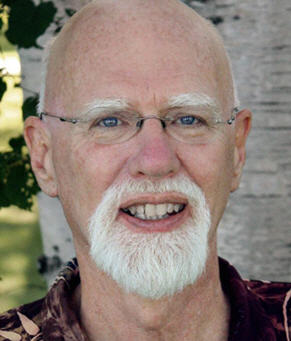|
Medicial Mistakes?
How many people each year suffer some type of preventable harm that contributes to their death after a hospital visit?
|
|
| | Create a Bigger Picture of Health | |
- Theodore Isaac Rubin, MD
|
The best healers are often those who know illness
intimately from their own experience.
Moving beyond Identification
To identify with something is to incorporate that thing (be it an object, a person, a job, a role, a thought, an action, a feeling, or a series of symptoms) within your definition of who you are. It’s funny, but most people don’t realize how closely their self-definition depends on a particular identification until that identification is challenged in some way. For example, people become identified with their jobs. When they lose their job, they lose their self-esteem.
When you are ill, illness tends to permeate your world, whether it is a simple cold or a chronic condition. Having asthma or having arthritis can easily become "being the woman with asthma" or "being the guy with arthritis." And you may come to identify yourself with that illness. You might use it, and abuse it, to judge yourself or to manipulate others. Some folks believe that illness or disease is some form of punishment. When they are sick, therefore, they feel guilty. They feel unloved and unlovable. They compound an already aggravated situation with negativity and self-judgment. To align with a bigger context of health means refusing to use illness or disease in this way.
Next time you find yourself "under the weather" or experiencing discomforting symptoms, watch the way your mind works. Illness can provide self-understanding, if you don’t get stuck in it. Pay attention to what you identify with. Self-observation is the first and most crucial step in breaking unproductive habits about your health, like blaming or berating yourself, other people, or circumstances for your condition, or thinking that because you are ill you are somehow a failure.
Observation without self-judgment is the key. Seeing clearly what your mind is up to, especially when it is caught in a loop of negative feedback, will teach you to simply move forward, regardless of the mind’s chatter.
Open to Prayer
Some people pray as a means of seeking comfort in difficult times. Others view prayer as a type of communion with a source of love or with the mystery that surrounds their lives. Because prayer, by its very definition, connects you with a higher power, or universal source, or deep innate wisdom, it can encourage a more expansive view of life. With prayer, the gift of health may be seen in a new perspective, which prizes health but does not assign it ultimate importance. The old adage, "If you’ve got your health, you’ve got everything," simply isn’t true. There are values more transcendent and meaningful than personal health.
Prayer can also serve as a means of expressing your interrelatedness with others. Recent research indicates that people who are prayed for by others, even by people they don’t know, receive benefit in the form of fewer complications in surgery and faster healing time. Science may question such studies and the efficacy of prayer for a long time. What is unquestionable, however, is what it does for you. When you direct care and attention outside yourself toward another person’s wellbeing, when you unite yourself with others in the commonality of shared pain and shared humanity, there is no doubt that you are healthier for it.
Expanding Your Context
Here are a couple of ways to carry the bigger picture of health even further.
| John W. Travis, MD, MPH, is the creator of the Wellness Inventory and its parent, the Wellness Index. He is the founder and co-director of ...more |  |
|
|
Popular Related Articles/Areas
Popular & Related Products
Popular & Featured Events
Dimensions of Wellness
|
|